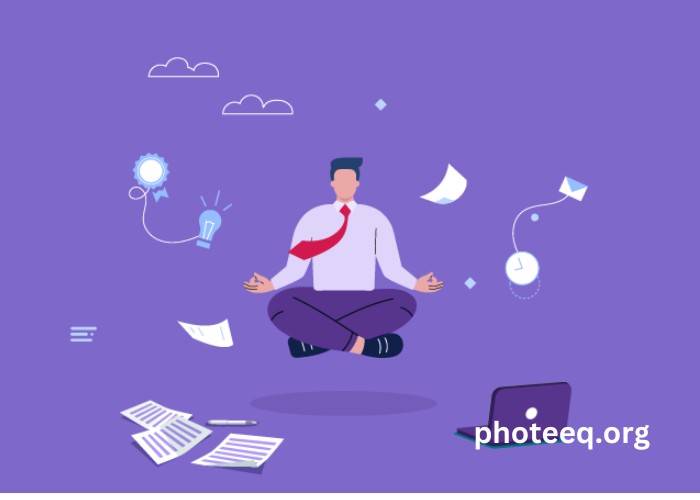
In today’s fast-paced world, maintaining mental health and managing stress are more critical than ever. With increasing work demands, personal responsibilities, and digital distractions, stress has become a common challenge. Poor mental health can impact all areas of life, including productivity, relationships, and physical well-being. This ultimate guide explores proven strategies for mental health improvement and stress management, empowering you to lead a happier, healthier life.
Understanding Mental Health
Mental health encompasses emotional, psychological, and social well-being. It influences how we think, feel, and act in daily life. Good mental health enables us to cope with stress, make meaningful decisions, and maintain strong relationships. Understanding mental health is the first step toward improving it.
Common Causes of Stress
Stress can arise from various factors, including work pressures, financial issues, family conflicts, and health challenges. Identifying the root cause of your stress is essential for managing it effectively. Recognizing your triggers helps you implement targeted solutions to reduce stress levels.
The Importance of Stress Management
Effective stress management is vital for preventing burnout, improving mental clarity, and maintaining physical health. Unmanaged stress can lead to anxiety, depression, heart disease, and weakened immunity. Learning how to manage stress enhances both your mental and emotional resilience.
Practicing Mindfulness and Meditation
Mindfulness and meditation are powerful tools for reducing stress. By focusing on the present moment and practicing deep breathing, you can calm your mind and lower anxiety levels. Apps like Headspace and Calm provide guided sessions for beginners.
Regular Exercise for Mental Health
Exercise is not just for physical fitness—it also plays a significant role in mental health. Activities like walking, yoga, and strength training release endorphins, the body’s natural mood boosters. Aim for at least 30 minutes of exercise daily to reduce stress and improve mental clarity.
Balanced Nutrition and Its Impact on Mental Health
A nutritious diet supports overall mental health. Consuming foods rich in omega-3 fatty acids, whole grains, and antioxidants can improve brain function and reduce stress. Avoid excessive caffeine, sugar, and processed foods, as they can worsen anxiety and fatigue.
Quality Sleep for Stress Reduction
Sleep and stress are closely connected. Poor sleep increases cortisol levels, heightening stress. Prioritize 7-9 hours of quality sleep by creating a relaxing bedtime routine, limiting screen time, and ensuring a comfortable sleeping environment.
Setting Boundaries and Saying No
Overcommitting and neglecting personal boundaries are major sources of stress. Learning to say no to unnecessary demands helps you protect your time, energy, and well-being. Prioritize your own needs and create a healthier work-life balance.
Building Strong Social Connections
Strong relationships provide emotional support, reduce stress, and improve mental health. Spend time with loved ones, join supportive communities, and nurture meaningful connections. Talking to trusted friends about your struggles can lighten emotional burdens.
Journaling for Emotional Clarity
Journaling is a therapeutic practice that allows you to express emotions, process thoughts, and gain clarity. Writing daily reflections or gratitude lists can help you identify stressors, track progress, and focus on positive aspects of life.
Time Management Strategies
Poor time management can cause stress and overwhelm. Using tools like calendars, to-do lists, and time-blocking techniques can help you organize tasks effectively. Prioritizing important activities reduces the feeling of being overwhelmed.
Limiting Screen Time and Digital Detox
Excessive screen time, especially on social media, can contribute to stress and anxiety. Schedule regular breaks from devices and consider a digital detox. Spend time outdoors, read books, or engage in hobbies to refresh your mind.
Seeking Professional Help
Sometimes, stress and mental health challenges require professional support. Therapists, counselors, and mental health professionals provide guidance, tools, and therapies tailored to your needs. Don’t hesitate to seek help when you need it.
Practicing Gratitude and Positivity
Gratitude shifts your focus from stressors to positive experiences. Practice gratitude by reflecting on the good moments in life. Fostering a positive mindset helps you build resilience and reduces stress over time.
Conclusion
Mental health and stress management are essential components of a balanced life. By practicing mindfulness, maintaining healthy habits, and seeking support when needed, you can improve your emotional well-being and manage stress effectively. Start incorporating these strategies into your daily routine to lead a healthier, happier life in 2024.






